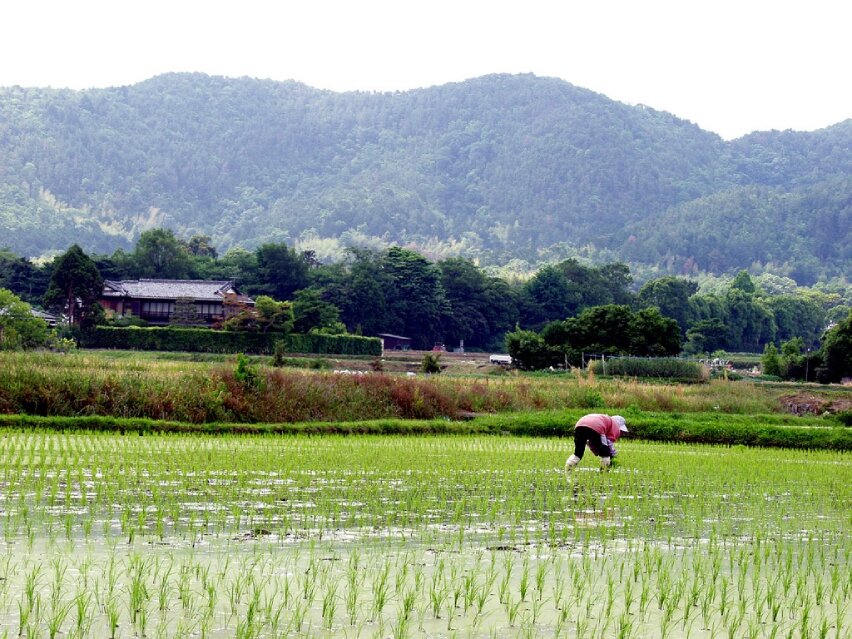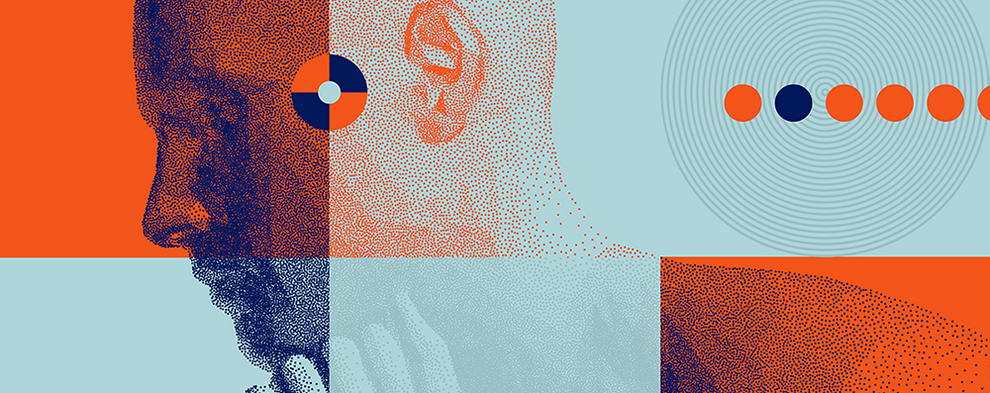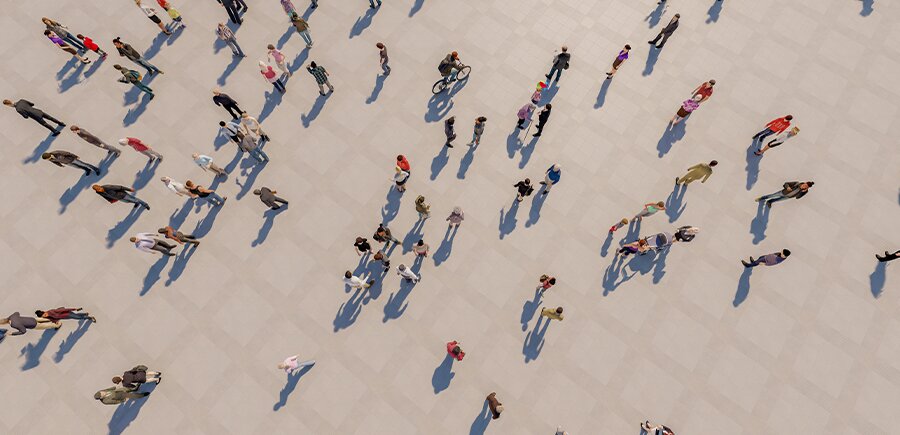Considering the Plantationocene

A two-day conference hosted by Global Centre on Healthcare and Urbanisation, University of Oxford; Maison Française Oxford (MFO) ; Laboratoire Caribéen de Sciences Sociales (LC2S-CNRS) Martinique; Groupe de recherche "Caribbean and Transatlantic Worlds on the Move" (MCTM) Martinique-Paris; Fondation Maison des Sciences de l’Homme (FMSH) Paris.
The concept of « Plantationocene » emerged quite recently during collective discussions with Donna Haraway and Anna Tsing at Aarhus University in 2014. This discussion has been published in the journal Ethnos in 2016[1] and it has gained momentum ever since in the writings of the human sciences devoted to the major ecological crisis that we are experiencing. As a critical tool to analyse the Anthropocene, and together with contemporary approaches, such as the Capitolocene[2] and the Chthulucene, the term means to analyse the temporal and spatial contexts of today’s ecological crisis. The Plantationocene recognizes particularly the processes of domination affecting the human and non-human, including the exponential development of fossil fuel economies. The term implies the recognition of processes of domination that took place in the slavery economic systems of the ‘New World’ and became a turning point towards practices of limitless planetary resource extraction. The use of the term « Plantationocene » deliberately upsets the notion of « Anthropocene », in which the responsibility for ecological destruction is attributed primarily to a homogenous humanity, without taking into account the constitutive power relations of the colonial and post-colonial West. In his « decolonial ecology », Malcolm Ferdinand takes up the notion and doubles it with that of « Negrocene »:
More than a "human parasitism" of the master-planter towards the slave, the Negrocene describes an unjust way of inhabiting the Earth where a minority drinks from the vital energy of a socially discriminated and politically dominated majority. Like the other side of the Plantationocene, the Negrocene signals the geological era where the extension of colonial habitation and the destruction of the environment are accompanied by the material, social and political production of the Negroes[3]
The aim of this two-day conference in Oxford is to explore the heuristic value of this notion of « Plantationocene ». We approach it as a concept endowed with a relevance in terms of grasping the processes of domination that more traditional approaches fail to configure as a whole. Many would argue that the Plantatiocene configures the current planetary era most effectively by articulating social and environmental relations, and by providing the ability to avoid the dissociation between human exploitation, and that of so-called ‘natural’ resources. Perhaps above all, the notion of Plantationocene is intended to reconsider the place of slavery in the process of global domination of the Western capitalist economy. Few concepts have affirmed with such force how slave economies and systems lie at the foundation of ‘Western modernity’, making of the latter the place of the terrible association of the unthinkable between « humanist/democratic progress » and « inhuman/slavery barbarism » in what Achille Mbembe describes as ‘slavery democraties’[4]. While orientating discussion towards these ideas, the conference also proposes to extend debate on how the ordering of the world, as made possible and imaginable from the perspective of the plantation, might include what Michel Lussault has considered as the ‘Urbanocene’[5].
We will therefore proceed in two parts. The first part of the conference will be devoted to examining the scope of the Anthropocene as an intellectual framework, primarily reflecting on the range of other critical approaches that obliterate how much the "inhuman" is concerned by the economic development of global capitalism from the matrix/womb of the plantation. This will be an opportunity to pay particular attention to the ideas of the « new materialisms », polarized on the idea of reconfiguring human/non-human relationships, without taking into account the practice of the ‘inhuman’. The second part will focus on thinking about the relationship between the plantation and the urban, assessing the relative relevance of the Plantationocene and Urbanocene by bringing together specialists in the urban world of the "North" and the Caribbean. On this level, it is not excluded to think that the passage to a disproportionate scale of the exploitation of resources is the cyclopean projection of an older order where the peasantries were in charge of feeding the cities. To this gigantism of agricultural production forged in the plantations, would then correlate the urbanocene.
- 1 – First part. The “plantationocene”, a notion that insists on the end of the clivage “nature-culture” through the inhuman predation of the human, the living and the material.
- 2 – Second part. The “plantationocene”, a notion that requires reconfiguring the links between the urban and the agricultural rural and envisaging the path from the plantationocene to the urbanocene
Programme
Tuesday 8th November
10:00 -
Introduction – Opening : David Howard (University of Oxford, Kellogg College), Pascal Marty (Maison française d’Oxford, MEAE-CNRS) and Christine Chivallon (CNRS-MCTM)
Morning: 1/1 Plantationocène
10:30-11:15 - Christine Chivallon, Anthropologist and Geographer, LC2S-CNRS, Martinique and MCTM
The plantationocene: a notion to decode our worlds? (From the plantation to the universe of academic knowledge)
11:15-12:00 - Rui Gomes Coelho, Historical Archaeologist, Assistant Professor, Durham University
Archaeology in the Plantationocene
12:00-12:30 - Discussion with Charles Forsdick (James Barrow Professor of French Université of Liverpool) and all the participants
Lunch
Afternoon: 1/2 Plantationocène
14:30-15:15 - Esteban Gonzales, Philosophe, Doctorant, Université de Paris 8 et MCTM.
Knowledge as commodity: epistemological extractivism and the struggles of subalternized knowledges in the Plantacionocene
15:15-16:00 - John Pugh, geographer, Reader in Island Studies, Newcastle University
The World as Abyss
16:00-16:30
Coffee-break
16:30-17:00 - Discussion with Charles Forsdick (James Barrow Professor of French Université of Liverpool) and all the participants
- -
Wednesday 9th November
10:00 Welcome-coffee
Morning: 1/3 Plantationocène
10:30-11:15 - Pascal Marty, Geographer, Maison française d’Oxford, (MEAE-CNRS)
Spatial dispersion of an invasive species in the Plantacionocene: the socio-ecological system of the small Indian mongoose
11:15-12:00 - Kasia Mika, Lecturer in Comparative Literature, Queen Mary University London, Sally K. Stainier, PhD in Political Science, Independent Researcher
Refashioning Futures with Sargassum: A Caribbean Poetics of Hope
12:00-12:30 - Discussion with Charles Forsdick (James Barrow Professor of French Université of Liverpool) and all the participants
Lunch
Afternoon: 2/1 Urbanocène
14:30-15:15 - Michel Lussault, professeur de géographie urbaine, Université de Lyon, École normale supérieure de Lyon,
Could the Anthropocene be an Urbanocene?
15:15-16:00 - Patricia Noxolo, School of Geography, Earth and Environmental Sciences, University of Birmingham
Black Pleasure Beyond the Plantationocene and Urbanocene: A Short Reflection on Tia-Monique Uzor's ‘The Noise My Leaves Make’
16:00-16:30
Coffee-break
16:30-17:15 - David Howard, Geographer, Professor in Sustainable Urban Development, Oxford University, Caribbean Studies Network, Kellogg College Urbanised islands: what does the ‘Plantationocene’ offer?
17:15-17:45 – Discussion/conclusions with Charles Forsdick (James Barrow Professor of French, Université of Liverpool) and all the participants
Notes
[1] HARAWAY Donna et al., 2016, « Anthropologists Are Talking – About the Anthropocene », Ethnos, vol. 81, n°3, p. 535-564. Voir aussi HARAWAY Donna, 2016 [2015], « Anthropocène, capitalocène, plantationocène, chthulucène. Faire des parents », Multitudes, vol. 4, n° 65, p. 75-81
[2] For a genealogy of the notion of « capitalocene », see Donna Haraway’s comments in Haraway, 2016, « Anthropocène, capitalocène… », op. cit. See also the text corpus from MALM Andreas, 2017, L’anthropocène contre l’histoire. Le réchauffement climatique à l’ère du capital, Paris, La Fabrique.
[3] FERDINAND Malcom, 2019, Une écologie décoloniale, Paris, Seuil, p. 105.
[4] MBEMBE A., 2013, ‘L’esclave, figure de l’anti-musée ?’, Africultures, 91, pp. 37-40.
[5] LUSSAULT Michel, 2021, « L’Anthropocène comme Urbanocène », in LUSSAULT M. et DISDIER V. (éds), Néolithique Anthropocène. Dialogue autour des 12000 dernières années, Lyon, Edition deux-cent-cinq et École Urbaine de Lyon, pp. 85-95.

The Subject and the Human Sciences in the Face of Artificial Intelligence

Attractiveness versus development?

Between Automatisms and the Automatisation of Language Practices


